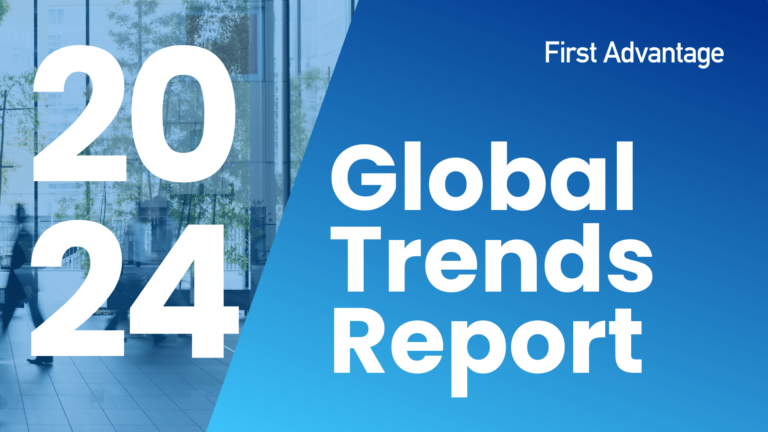Oregon Governor, Kate Brown signed the “Oregon Equal Pay Act of 2017” (HB 2005) into law on June 1, 2017.
The legislation is comprised of several sections with varies effective dates. The effective date for Section 2 of the legislation is January 1, 2019. Section 4 of the legislation becomes effective on the 91st day after the date on which the 2017 regular session of the Seventy-ninth Legislative Assembly adjourns sine die. According to the National Association of Professional Background Screeners (NAPBS), the projected date of adjournment is June 23rd and the constitutional deadline for adjournment is July 10, making the effective date no later than October, 2017. The effective date for Section 12 is also January 1, 2019.
The legislation is intended to prohibit employers from screening applicants based on salary history and from relying on salary history information in making employment decisions. Employees who feel their employer may be in violation may seek relief from the Oregon’s Bureau of Labor and Industries or bring a lawsuit against their employer.
Employers are provided with a safe harbor in the legislation under Section 12, that entitles an employer to motion the court to disallow an award of compensatory and punitive damages.
The legislation also contains a posting notification requirement. The Oregon Bureau of Labor and Industries is responsible for providing the posting notice template for employers.
Specifically, Section 2 of the legislation states:
SECTION 2. ORS 652.220 is amended to read:
652.220.
(1) It is an unlawful employment practice under ORS chapter 659A for an employer to:
(a) In any manner discriminate between employees on the basis of a protected class in the payment of wages or other compensation for work of comparable character.
(b) Pay wages or other compensation to any employee at a rate greater than that at which the employer pays wages or other compensation to employees of a protected class for work of comparable character.
(c) Screen job applicants based on current or past compensation.
(d) Determine compensation for a position based on current or past compensation of a prospective employee.
This paragraph is not intended to prevent an employer from considering the compensation of a current employee of the employer during a transfer, move or hire of the employee to a new position with the same employer.
(7) An employer shall post a notice of the requirements of this section in every establishment where employees work. The Bureau of Labor and Industries shall make available to employers a template that meets the required notice provisions of this section.
Specifically, Section 4 of the legislation states:
SECTION 4. It is an unlawful practice under ORS chapter 659A for an employer or prospective employer to seek the salary history of an applicant or employee from the applicant or employee or a current or former employer of the applicant or employee. This section is not intended to prevent an employer from requesting from a prospective employee written authorization to confirm prior compensation after the employer makes an offer of employment to the prospective employee that includes an amount of compensation.
Specifically, Section 12 of the legislation states:
SECTION 12. (1) In a civil action under ORS 652.230 or 659A.885 (1) alleging a violation of ORS 652.220, the employer may file a motion to disallow an award of compensatory and punitive damages. The court shall grant the motion if the employer demonstrates, by a preponderance of the evidence, that the employer:
(a) Completed, within three years before the date that the employee filed the action, an equal-pay analysis of the employer’s pay practices in good faith that was:
(A) Reasonable in detail and in scope in light of the size of the employer; and
(B) Related to the protected class asserted by the plaintiff in the action; and
(b) Eliminated the wage differentials for the plaintiff and has made reasonable and substantial progress toward eliminating wage differentials for the protected class asserted by the plaintiff.
(2) If the court grants the motion filed under this section, the court may award back pay only for the two-year period immediately preceding the filing of the action and may allow the prevailing plaintiff costs and reasonable attorney fees, but may not award compensatory or punitive damages.
(3) Evidence of an equal-pay analysis undertaken in accordance with subsection (1) of this section is inadmissible in any other proceeding.
(4) Information that an employer has not completed an equal-pay analysis may not be used as evidence of a violation of ORS 652.220 in an action under ORS 652.230 or 659A.885 alleging a violation of ORS 652.220.
Link to the Oregon Legislation: Oregon Equal Pay Act of 2017
Thank you for your business.
The foregoing information is not offered as legal advice but is instead offered for informational purposes. First Advantage Corporation is not a law firm and does not offer legal advice and this communication does not form an attorney client relationship.
The foregoing information is therefore not intended as a substitute for the legal advice of a lawyer knowledgeable of the user’s individual circumstances or to provide legal advice. First Advantage Corporation makes no assurances regarding the accuracy, completeness, currency or utility of the above information. Legislative, regulatory and case law developments regularly impact on general research and this area is evolving rapidly.


